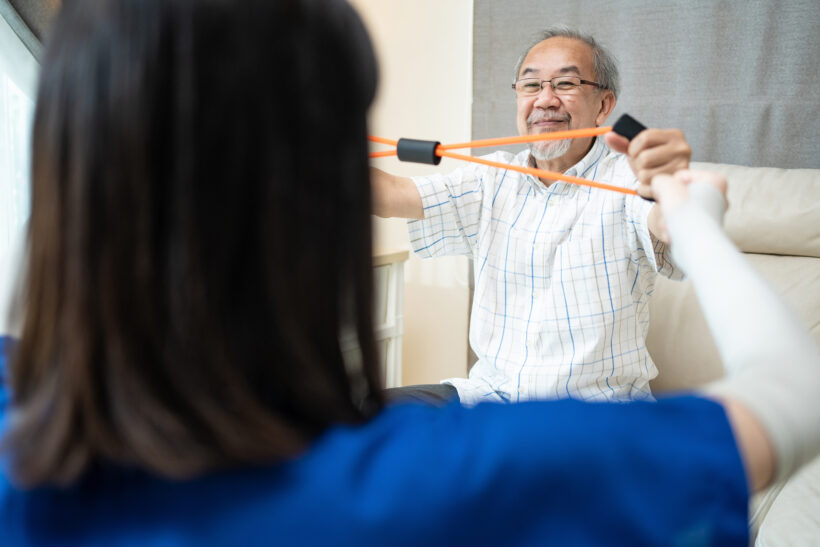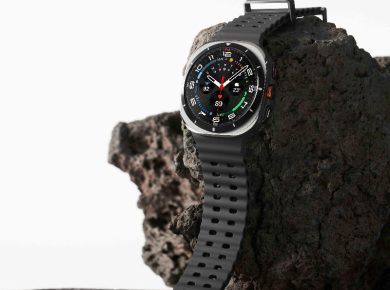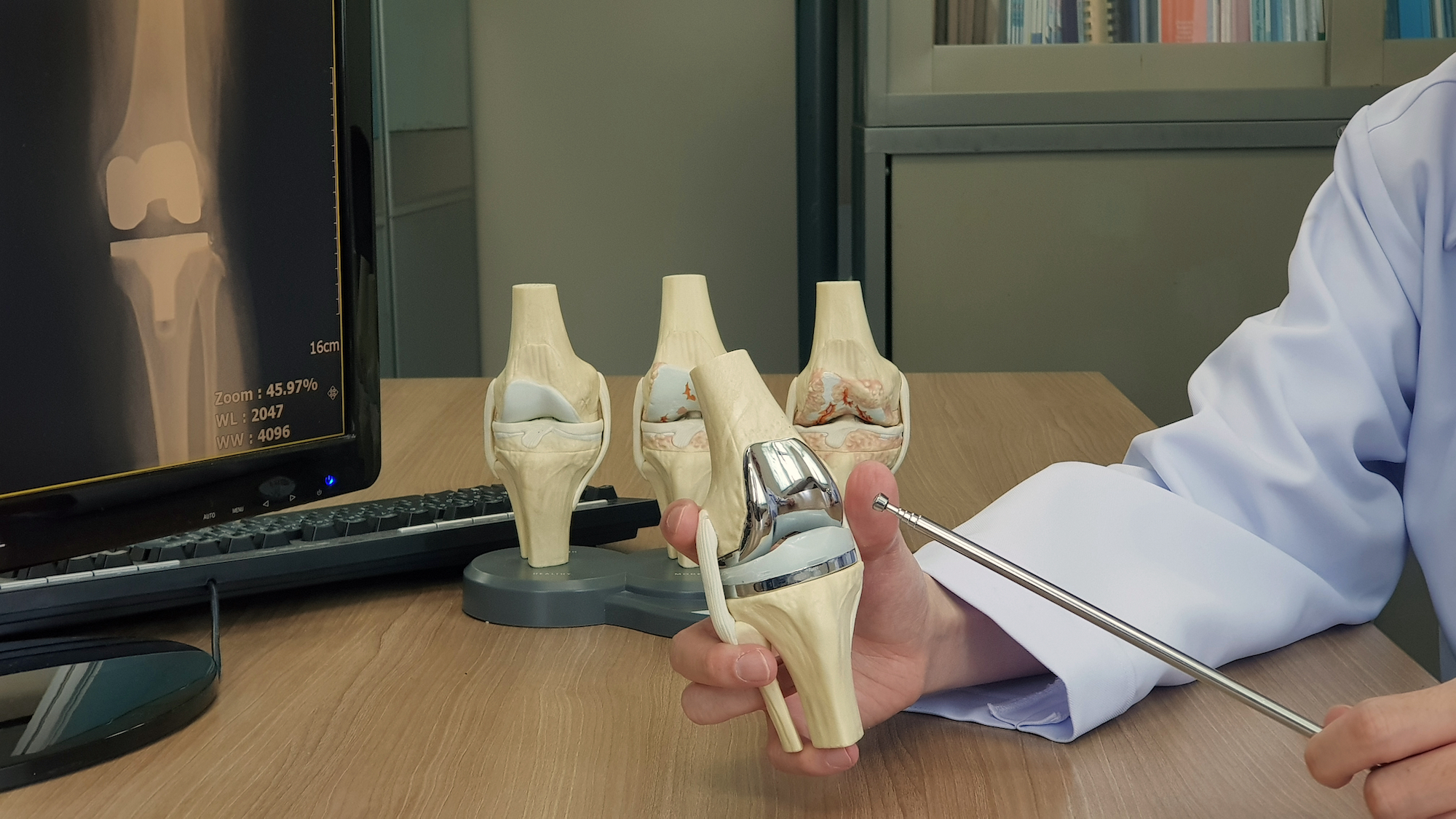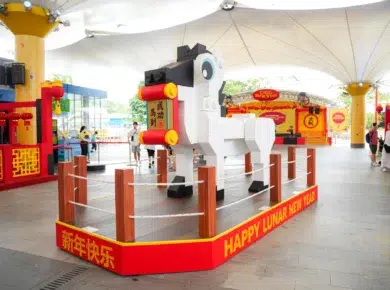A New Era of Stroke Rehabilitation in Singapore
Stroke is one of Singapore’s leading causes of disability, yet many survivors face fragmented care and delayed rehabilitation after leaving the hospital. To change this, a S$6.59 million Stroke Rehab Ecosystem has been launched — a first-of-its-kind collaboration funded by the Lien Foundation, designed to provide seamless, patient-centric rehabilitation pathways for stroke survivors from hospital to home.
Launched in partnership with Singapore General Hospital (SGH), Tan Tock Seng Hospital (TTSH), and community partners including AWWA, NTUC Health, Stroke Support Station (S3), St Luke’s ElderCare (SLEC), and SPD, this four-year initiative (2025–2029) aims to support survivors holistically and empower them to reclaim their independence.
A Seamless, Tiered Recovery Model
The Stroke Rehab Ecosystem follows a structured three-tier model to ensure that every survivor receives tailored care based on their needs:
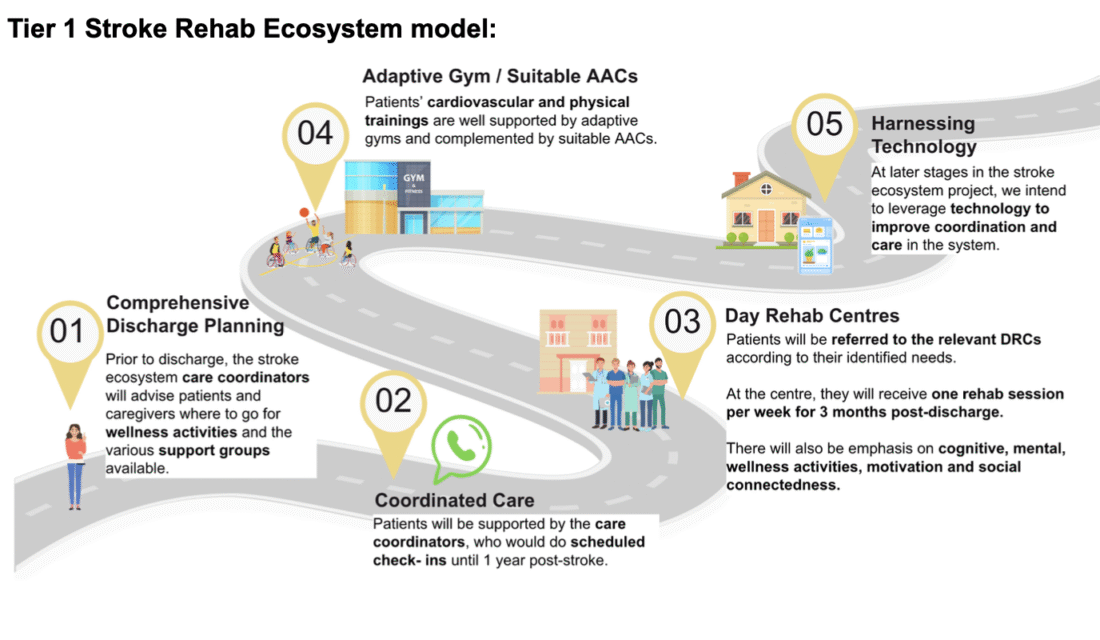
-
Tier 1: For mild cases (~40%), survivors are connected directly to community wellness programmes rather than being left to navigate recovery alone.
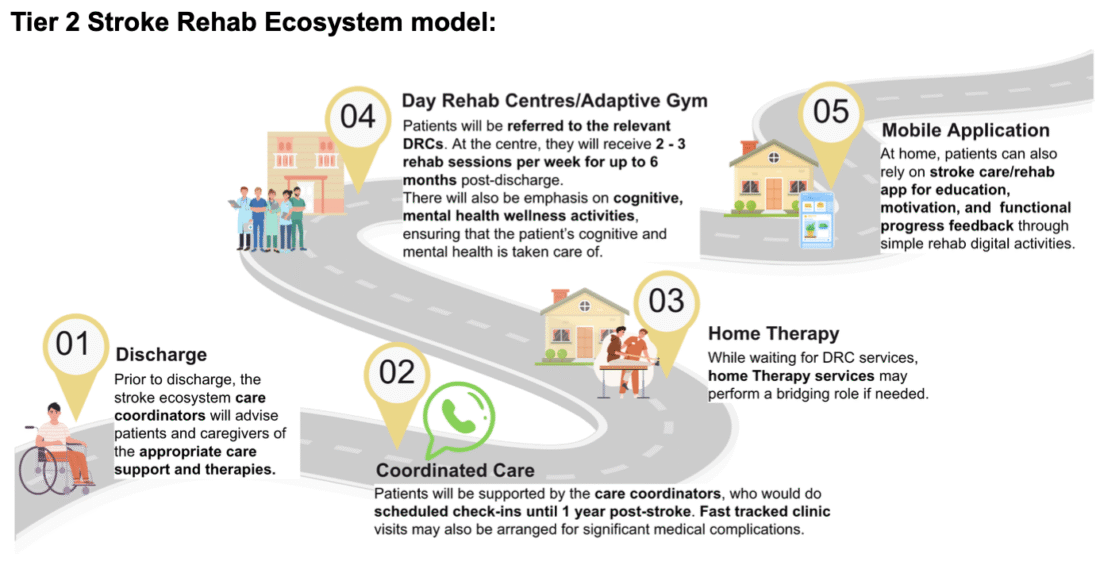
-
Tier 2: For those with cognitive, sensory, or communication impairments (~40%), faster referrals to Day Rehab Centres will reduce long waiting times, with therapists providing follow-up to ensure rehabilitation continues.
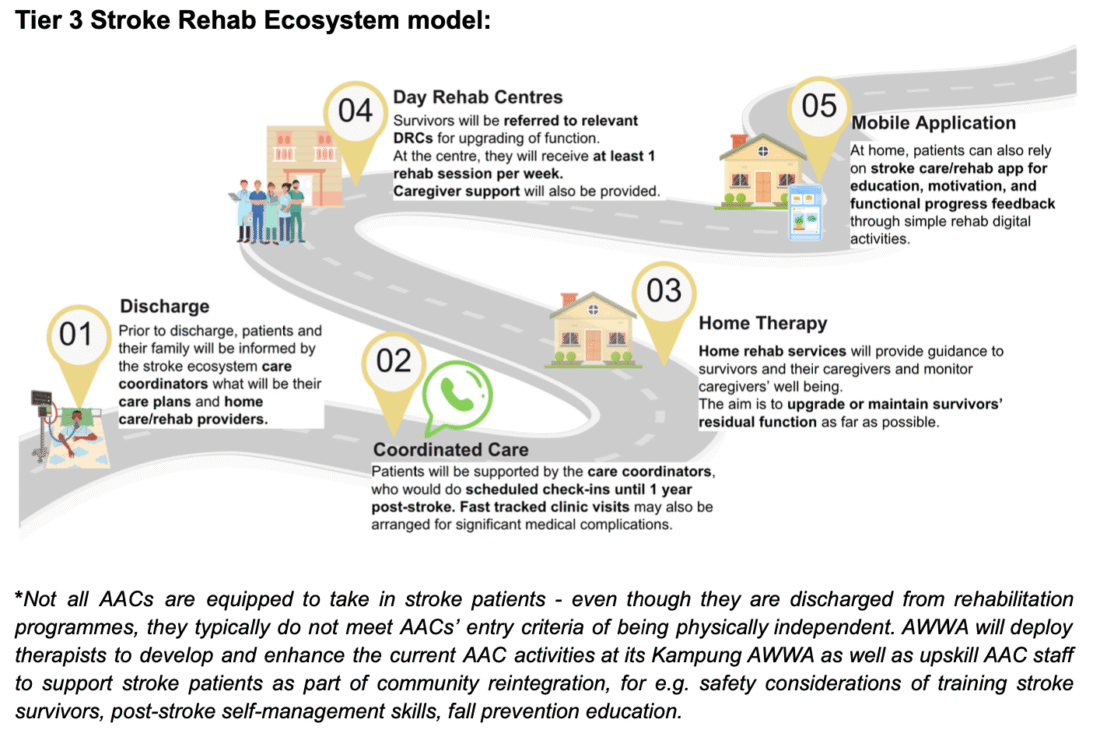
-
Tier 3: For severe cases (~20%), home-based therapy, adaptive fitness facilities, and caregiver support help survivors with limited mobility regain as much independence as possible.
Empowering Survivors Through Community and Innovation
The initiative introduces Singapore’s first adaptive gym at Ang Mo Kio Hub, managed by Stroke Support Station (S3). Designed for stroke survivors, it combines specialised equipment and expert guidance to improve strength, balance, and confidence.
Community partners like AWWA and NTUC Health are also expanding home therapy services, providing physiotherapists, occupational therapists, and speech therapists who deliver personalised care directly to survivors’ homes. This includes exercise plans, home safety modifications, and caregiver training to ensure smoother recovery journeys.
The Human Impact: Voices from the Frontline
“To suffer a stroke is to endure a profound and often devastating loss — not just of physical ability, but of independence and confidence. This coalition creates a more coordinated pathway from hospital care to community rehabilitation and beyond.”
– Mr Lee Poh Wah, CEO, Lien Foundation
“Our Stroke Rehab Ecosystem recognises that every survivor’s journey is unique. By addressing both mental and physical recovery, we’re ensuring that no patient or caregiver gets left behind.”
– Adj. Assoc. Prof. Loh Yong Joo, Overall Project Lead (TTSH)
The Urgency for Change
Stroke prevalence in Singapore is rising, particularly among working-age adults (30–59 years old), with cases increasing by 20% over the last decade. Alarmingly, fewer than half of survivors (46%) return to work, contributing to an estimated S$5.42 billion economic burden.
Without timely rehabilitation, one in five survivors experiences deterioration in mobility, impacting daily activities and increasing risks of complications such as falls and fractures. The new ecosystem addresses these gaps by providing early, continuous, and coordinated rehabilitation — improving not just survival rates but quality of life.
A Vision for Better Recovery
The Stroke Rehab Ecosystem is more than just a healthcare initiative — it’s a blueprint for community-driven recovery. By integrating medical expertise with home-based support and innovative adaptive fitness programmes, this project offers survivors a chance to rebuild their lives with dignity and confidence.
For more information about the Stroke Rehab Ecosystem and participating partners, visit:
https://www.lienfoundation.org | https://www.sgh.com.sg | https://www.ttsh.com.sg
Images: Envato (header), Lien Foundation, Singapore General Hospital and Tan Tock Seng Hospital
